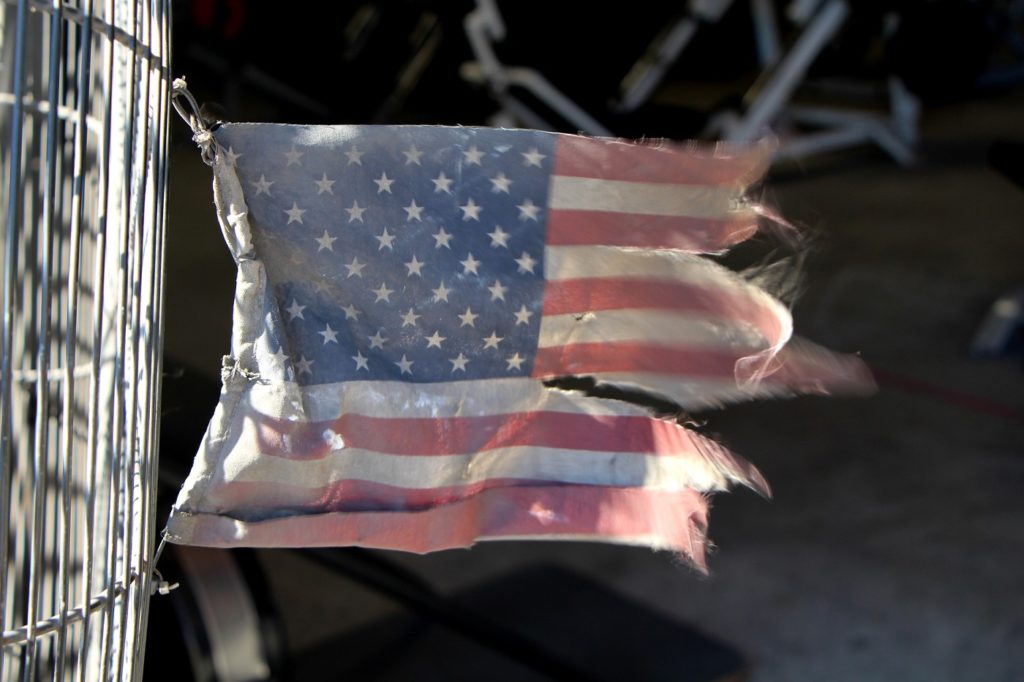The great question before us, as is commonly thought, is what will happen to the United States, riven as we are with partisan hatreds, facing a debt so monstrous that not one prominent member of either major party will breathe a word about it, and admitting in plague-time—with what prudence I will not address—unprecedented encroachments upon the liberties of ordinary citizens. I believe that the question is misplaced. It assumes that unity is the norm in human affairs, and strife the exception. But a cold-eyed view of history suggests the reverse. Unity is what needs the special cause.
And we lack the cause.
I turn to a volume of The Century Magazine, including issues from November 1892 through April 1893, fewer than thirty years since the end of the Civil War. The election of Bill Clinton is farther from us now than these numbers were from Appomattox. Yet despite the nearness of the bloodiest war in American history, I find in these journals, everywhere I turn, evidence of an abiding love of one’s country and her culture, a love that was deep and strong, fruitful in arts and letters, and impressively confident, even as the wounds of the war had not all been healed. Such love I do not find among us now.
Take for instance this selection from the letters of John Sherman, the senator, and William Sherman, the general. It is January 18, 1861, in the waning weeks of the presidency of James Buchanan. War draws near. General Sherman writes from Louisiana, where he serves as the superintendent at the State Seminary of Learning and Military Academy, the school we know now as Louisiana State University. He informs John that he has resigned, and includes his brief letter of resignation, from which I quote:
Start your day with Public Discourse
Sign up and get our daily essays sent straight to your inbox.I accepted such position when Louisiana was a State in the Union, and when the motto of this seminary was inscribed in marble over the main door . . . The Union: esto perpetua. Recent events foreshadow a great change, and it becomes all men to choose. If Louisiana withdraw from the Federal Union, I prefer to maintain my allegiance to the old Constitution as long as a fragment of it survives, and my longer stay here would be wrong in every sense of the word. . . On no earthly account will I do any act or think any thought hostile to or in defiance of the old Government of the United States.
There speaks the essential patriot. But you will not find hatred in those words, or lust for vengeance, and this is from the man who will burn his terrible swath from Atlanta to Savannah and the sea.
The general hated the press. News reporters, he wrote from Vicksburg (February 4, 1863), “should be treated as spies,” because they give to the enemy “direct and minute information of the composition of our forces,” while they puff up their patrons, but give “libel and abuse to all others,” “sowing dissensions among us.” Strife sells. Sherman likewise had no patience for those who purveyed sectional hatred. We see as much by his behavior after the war. Thus he writes to John (February 21, 1869) about how they received him at his old academy:
Boyd was perfectly grateful for the books you sent him, which were in the library and marked with your name. I found my own portrait in full uniform in the main hall, and in the library many books on our side of the war. Boyd asked me for army and navy registers, coast surveys, and railroad surveys, and other national books that I have and will send him. Of course they have their old prejudices, and labor to prevent their cause from sinking into one of pure malignity; but as to the future, he promised me to teach his pupils to love and honor the whole country. He preserves all my old letters, and we looked over many, in every one of which I took the highest national grounds, and predicted the ruin of their country.
That was Col. David F. Boyd, an old friend and avid secessionist, who fought with the Virginia Tigers on the Confederate side. Senator Sherman donated the books to help make up for the burning of the school’s library by the Union general Thomas Kilby Smith; only William’s intervention stayed Smith from destroying the whole school. Notice General Sherman’s tolerance, which is not softness of heart. He tells his brother that the old prejudices die hard, but who could demand otherwise? Meanwhile, Boyd treats his friend and enemy like a prince, and, far from defacing the portrait of the victor, or demanding that it be taken down, he lets it stand proudly. Far from burning Sherman’s letters, Boyd has kept them, and the two scarred old warriors read them together—with what mingling of contradictory feelings we the soft-bodied cannot imagine. The letters are not about drink or women. They are not laced with petty obscenities. They are about the coming war, and in them Sherman speaks boldly, foreseeing the ruin of the South.
As for the old motto and the marble tablet on which it stood, Colonel Boyd “has ordered an iron casting of the same size and same inscription”—The Union—Esto perpetua. Warriors forgive one another, because they know what it is to bear the fight. Civilians snarl.
What did a man like Sherman want to preserve? No one, I think, dies for electoral machinery. We might catch a glimpse of it in an article from January, 1893. It is a tribute to the essential man of peace, the Quaker poet, John Greenleaf Whittier, who had died a few months before. “I have just been to see an old friend,” Whittier writes to the author, the novelist and feminist social reformer, Elizabeth Stuart Phelps Ward. “We talk as men talk who listen the while for the inevitable summons, solemnly and not unhopeful. I am not sure I am any better for my long life—any nearer to God; but he seems nearer to me, and that comforts me.”
Whittier and Mrs. Ward did not agree on everything political. For one thing, he did not cheer the suffrage movement. “Think of those grotesque caricatures of womanhood at the ballot-box!” he exclaimed. “Of legislators in panniers and bustles, scant of clothing where it is most needed, and loaded down with it where it is not!” But Whittier was humble and gracious, large of heart and sweet in demeanor, and Mrs. Ward loved him dearly for it. The editors place a noble photogravure of the old sage on the frontispiece, with these words, in Whittier’s handwriting:
Not by the page word-painted
Let life be banned or sainted;
Deeper than written scroll
The colors of the soul.
Sweeter than any song
My song that found no tongue;
Nobler than any fact
My will that failed of act.
How infinitely distant from the angry self-assertion of our times! We do not know what works of art or deeds of courage and love lie unrealized in the depths of the human soul; and the poet, with kindness toward others and disappointment in himself, begs us to consider that only God can see the man your neighbor really is.
“He gave us,” says Mrs. Ward, who was farther from Christian orthodoxy than even a Quaker could be, “the music of human freedom, of human brotherhood, of passionate human purity, of an intimacy with nature more widely comprehensible than that of Wordsworth, and scarcely surpassed by that inspired pantheist. But he gave us something beyond all this: he gave us faith in God.” In a time when “it is scholarly to disbelieve, and cultivated to scoff, and superior to outgrow the faith of our childhood,” when art itself, deprived of its highest aim, “walks blindfold under the stars—this poet, being dedicated, has done more to hold the faith of the American people to the God of their fathers than any other one man in our nation.”
She does not say that Whittier is the greatest English poet of his time, for one greater than he “lies dead in state as these words are written—the great author of ‘In Memoriam.’” There is no partisan exaggeration, no ideological skew. Rather, Mrs. Ward appeals, as a matter of course, to the general experience of her countrymen:
The best tribute to Whittier will never be written. The heart of the people holds it. He who consecrated everything else—genius, fame, love, and death—has taught us how to consecrate desolation and anguish—the last and hardest lesson of them all; to “rest the soul” on God’s
Immortal love and Fatherhood,
And trust him as his children should.
There is no “heart of the people” any more. What young people know who Whittier was? Who would care? We have no Whittier among us, anyway. They who love much, honor those who also love, even when, as with Sherman and Boyd, the objects of love are not quite the same. But they who hate know only a false and fractious “unity,” and they who are indifferent go their idle and several ways.
We thought for a long time that a common culture and history could serve us in place of a common faith. That was the bland liberal hope. Dashed; the culture withers, and the history is traduced and loathed.
E pluribus nihil.













